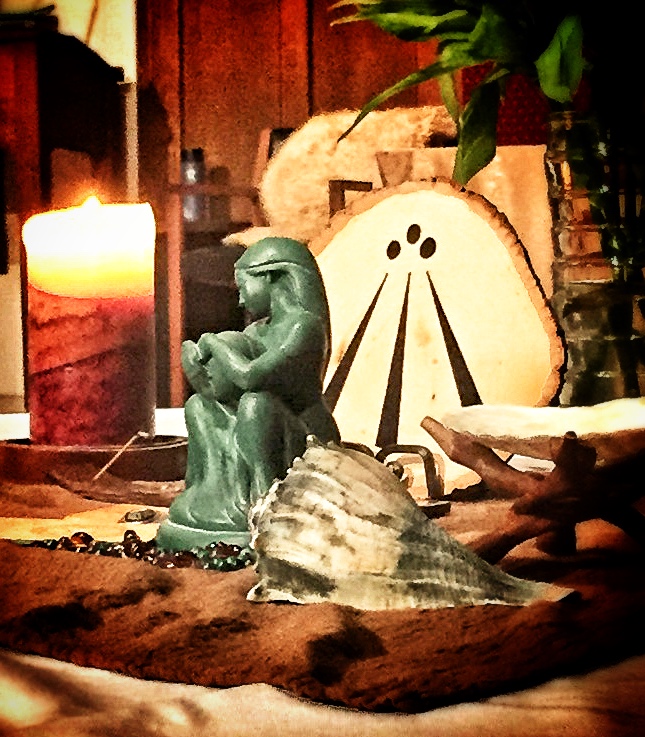Suppose you belong to a religion that says you’re either in or you’re out — like (to pick an example at random on Easter Sunday) Christianity. Suppose you believe that if you don’t accept Jesus as your Personal Savior (TM), you’re going to hell. And you’ve got your badge, so you’re all set. And then you walk around town, and you see someone wearing a different badge.

This may well bother you. It might be something like seeing someone with a horrible disease — one which you happen to be carrying the antidote to. Or — if this person is proud of their badge — like seeing someone carrying a Nazi flag or something.
I’ve never been in this situation (except as someone not wearing such a badge), so I’m not sure how it feels; and obviously it will bother some people more than others.
But the point is that it can be socially awkward. Being around people who don’t share your fundamental belief system can be stressful. It is difficult to be reminded again and again that your friends don’t share your religion. (Alternatively, maybe it wouldn’t bother you at all — but in that case, how strong is your own personal belief, really?)
When I was growing up Zen in the Bible belt, some people would react with disbelief when they found out I wasn’t Christian. Don’t you go to church? They seemed to think I was literally insane. And you can pity an insane person, but you can’t build a strong personal connection with them.
We’re Not Like Those ‘People’
The tendency, then, is for religions to create in-groups and out-groups — to divide people, rather than unite them. This is a huge problem all over the world, as a simple glance at the headlines will show. People tend to be in families that are all the same religion, to have friends that are all the same religion, and so forth. This is profoundly unhealthy.
The fourth argument against religion is simple and undeniable: religion creates divisions between people, and leads to terrible prejudice, discrimination, anger and violence of all kinds, from family squabbles to full-scale warfare.
But there are two salient, related points here.
It’s not just religions. Humans form in-groups and out-groups at the drop of a hat, for any excuse, based on language, culture, geography, even hair and skin color. This is regrettable, but you can’t blame religion for it. One might hope that religion would help alleviate the problem, not exacerbate it, and in fact…
It’s not all religions. Not all religions are of the strong “you’re in or you’re out” type. Most people who fall under the Hindu umbrella, for example, think it would be ridiculous if the whole world were Hindu. Chinese philosophy admits of the “three paths up the mountain” model, which balances tolerantly Confucianism, Buddhism, and Taoism. Some religions — such as many varieties of modern paganism — encourage and celebrate religious diversity. There are even varieties of Christianity that teach that you can still get to heaven even if you’re not a personal friend of Jesus, though unfortunately those varieties are a marked minority.
And most people today in America are, I’ve found, pretty tolerant. Even though Christianity is officially a “you’re in or you’re out” religion, and Christian doctrine calls for you to go out and proclaim the good news, and even though there are some very loud obnoxious evangelists chewing up the scenery on TV, most people in America treat your religion as a private thing you do in your home. As long as you don’t march through the streets shouting praises to Apollo, you’re cool. Even if you do proclaim your faith loudly, most people just complain about the noise. (Though maybe that just means most Americans aren’t all that fervent about their beliefs.)
Is Tolerance Enough?
No. Tolerance is better than bringing out the torches and pitchforks, but it’s also not ideal. People should be talking about these things, discussing them and comparing them, not keeping them private. This is how we learn: we ask questions, we answer questions, we contrast our opinions and examine each other’s ideas and feelings. If we don’t do this work, we’re just politely ignoring each other’s badges — and probably not paying enough attention to asking ourselves these questions, and exploring our own ideas and feelings. Ignoring the badges doesn’t make them go away.
Only by dialogue and engagement can we break out of this in-group / out-group nonsense. Maybe we’ll get there eventually, and the “live-and-let-live” attitude is a necessary step in that direction. I hope so.

And Happy Zombie Jesus Day. 😉





Leave a comment